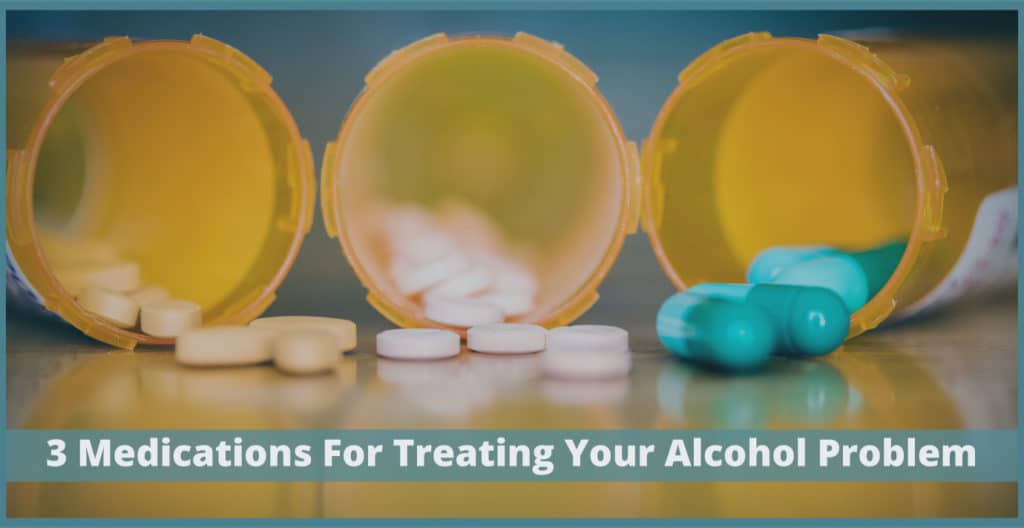If you find yourself struggling with alcohol addiction, the addition of prescription medication to your treatment regimen may help you better manage this disease. Certain medications can make your treatment journey more effective and reduce your risk of relapse. Currently, the FDA has approved three medications for treating alcohol addiction:
- naltrexone
- disulfiram
- acamprosate
Naltrexone
Naltrexone, also sold as Depade or Revia, helps reduce your cravings for alcohol. This medication blocks the euphoric feeling in the brain that occurs when you drink. This medication reduces the urge or desire to drink while also reducing the desire to drink more if you make a mistake and have a drink. [inline_cta_one] Naltrexone is not a new medication in the fight against alcohol addiction. Studies into naltrexone for alcohol use started in the 1980s, followed by clinical trials that went into the 1990s. These early studies showed that the use of naltrexone decreased relapse rates significantly. The clinical trials found a higher rate of abstinence between those patients who took naltrexone and those who took a placebo. In 1994, the drug received FDA approval for use in treating alcohol addiction.
Antuse (Disulfiram)
Antuse, which is the brand name for disulfiram, was the first drug approved to treat alcohol addiction. This medication makes you feel very ill or suffer an adverse side effect when you consume alcohol, which is a highly effective deterrent. If you take Antuse and have a drink, you may experience:
- mental confusion
- vomiting
- chest pain
- weakness
- headache
- flushing
- breaking problems
- anxiety
- blurred vision
These effects happen soon after drinking and can last for an hour or longer. The medication is taken one time a day in pill form, and it remains one of the most widely used medications across the globe for alcohol addiction. The discovery of disulfiram and its effect on alcoholism was made in the 1940s when two researchers were seeking to find medication to treat intestinal worm infections. When the researchers tried the medication on themselves, they found that it made drinking alcohol very unpleasant. They proposed that it could be used to treat alcohol dependency, and it gained approval in the United States in 1951.
Campral (Amcamprosate)
The newest player in the alcohol addiction treatment regimen, acamprosate (brand name Campral), received FDA approval in 2004. This medication reduces the emotional and physical discomfort that withdrawal creates when someone stops drinking. People who take campral may experience less anxiety, insomnia, and overall restlessness as their brains seek to restore the balance of its neurotransmitters without the use of alcohol. This medication is taken in capsule form and is typically tolerated well with few side effects.By reducing the impact of withdrawal symptoms, Campral can make it less likely for you to relapse. This medication has been used in Europe for treating alcohol dependence since the early 1980s, but was not added to American protocols until much later.
What Is Medication-Assisted Treatment?
Medication-assisted treatment (MAT) takes these prescription medications and combines them with alcohol counseling and behavioral therapy to address alcohol addiction. It’s a whole-patient approach and is effective at creating lasting change. Medication-assisted treatment has many benefits for patients fighting addiction, including:
- decreased risk of withdrawal
- increased retention of behavioral and cognitive treatments
- reduced risk of criminal activities
- less intense withdrawal symptoms
If you’re struggling with alcohol addiction and are interested in a medication-assisted treatment program, The Bluffs is ready to help. Reach out today to learn more.








